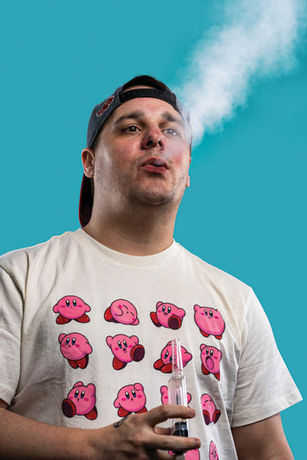Jessica F. Gonzalez, Esq. serves as a Cannabis attorney at Hiller PC, as well as outside General Counsel for Minorities for Medical Marijuana, Inc. She also led the social impact committee for NJ CAN 2020 – the coalition that organized and ran the most successful legalization campaign in the country. Jessica is passionate about helping her clients navigate the maze of licensing applications in the newly legal Cannabis industry in New Jersey. Through her advocacy work, she has helped shape Cannabis policy with an emphasis on social equity and empowerment for minorities and drug war veterans. She recently spoke to Northeast Leaf about her efforts.
How did you first get involved in Cannabis activism and law?
I got involved late 2017 as soon as Governor Murphy pledged to legalize adult-use Cannabis within his first 100 days. I was a first-year attorney working in the entertainment industry protecting domestic and international trademarks. I ended up having what one could call an absolute existential crisis about my career. I knew that if I was going to continue down this legal path, I would need to find an industry that aligned with my spirit. I’ve been a Cannabis consumer since I was 17 and Cannabis has remained a constant in my life. I decided right then in 2017 that I would dedicate my career to a plant that helped shape me and my level of consciousness. Once I decided to get involved, the whole universe conspired to make it a reality. I educated myself heavily on the history of Cannabis, attended any event I could and spoke with anyone who would speak to me. Eventually, I went from an eager audience member to a stage panelist. I leveraged my law degree, my background growing up in a low socio-economic community and the support of my community to fight for equitable policies. I looked around and realized no other lawyers were fighting for communities most harmed, so I took it upon myself to be that voice, to be that pillar and to be that change maker.
What needs to change in the Cannabis industry as it relates to equality and equity?
I am tired of seeing pretty words on paper, but disastrous implementation. To turn words into a functioning reality, equity programs need funding and resources tied to its goals. Allocating a number of licenses to specific groups does not equate to success. A license in hand does not guarantee an awardee will become operational or successful. What about those who were harmed by Cannabis prohibition, but do not want to get involved in the Cannabis industry? In my opinion, these communities should also benefit from the Cannabis industry and have access to education, general business loans, incubator programs, etc. funded by Cannabis tax revenue. We also need more transparency and reporting from states on licensing, equity programs and tax revenue so we can analyze what is working, what is not and where more money should flow. The more information and data we have, the more effective we can be when advocating for equitable policies – especially when it comes to federal legalization.
As a lawyer, what is your advice for people who’ve been convicted of Cannabis offenses looking to expunge their criminal records?
First, if their state offers expungements, to seek a qualified criminal defense attorney to assist with their expungement paperwork. Second, to advocate for automatic expungements to remove that burden from the petitioner if their state does not contemplate for automatic expungements.

What are the biggest challenges facing social equity applicants for Cannabis licenses in New Jersey?
Our definition of ‘social equity’ applicant is a bit limiting, but working with what we have … access to capital, professional assistance and obtaining municipal support. Despite the wonderful guardrails set up in regulations to insulate against predatory practices, the high level of compliance results in high fees for professional services to assist applicants with navigating complex regulatory waters. Sadly, much of the work we advocates fought for on the state level – such as no license caps, ban on competitive licensing, low application fees, and priority levels for social equity and diversely-owned businesses – are being undone on the municipal level. In order to obtain a license from the Cannabis Regulatory Commission (CRC), you need site control and proof of local support. It costs money to hold property for an indefinite amount of time and it costs more money to apply on the municipal level than it does on the state level. It all comes down to money and connections and without both, it’s going to be difficult (but not impossible) for applicants to apply, operate and most importantly, succeed.
How can someone go about finding out more about entering the New Jersey adult-use Cannabis business?
The CRC’s website is a fabulous tool for eager applicants looking to learn. The CRC has issued summaries, guidance documents and FAQs, as well as recordings of all the public meetings, special meetings, workshops and educational seminars. If you’re not into reading 400+ pages worth of laws and regulations, then I suggest taking a close look at the Notice of Application Acceptance (Notice). This Notice sets forth what’s required for those looking to apply for Cultivation, Manufacturing, Retail and Testing Labs. New Jersey currently does not have regulations or an application period for Wholesalers, Distributors and Delivery Operators, but that will come in the near future. Regardless, the Notice is a good starting point if you’re looking to cut to the chase.
What is the status of homegrow in New Jersey? Will patients or adults ever be able to cultivate their own Cannabis?
Homegrow is still illegal in NJ despite multiple homegrow bills pending in the state legislature. I anticipate that homegrow will be allowed once the adult-use market is up and running. It’s only then that we can prove to the legislators with numbers, data and figures that allowing homegrow will not cut into their anticipated revenue margins. And more importantly, that their fear of diversion is baseless.










